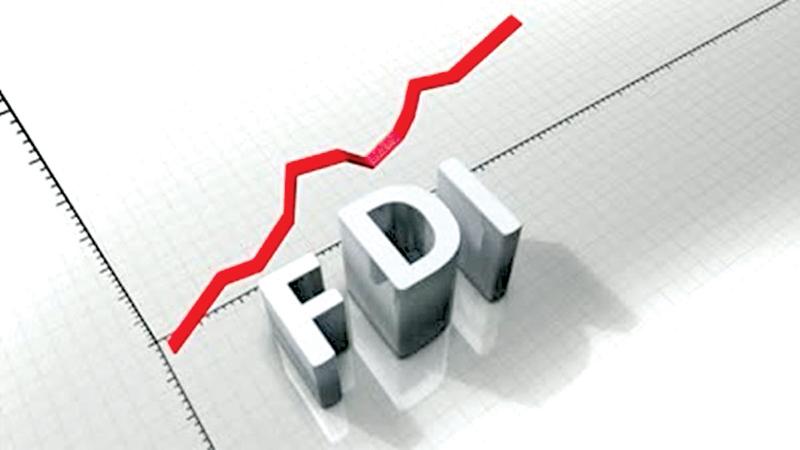
Top priority should be given to address the debt burden of the country which would derail growth prospects if sidelined and steps should also be taken to implement reforms to achieve a growth of over 6.5 percent in the coming years, said a top economist.
Sri Lanka’s external debt amounts to around US$ 4.8 billion this year and trillions of dollars in the next four years.
 Former Central Bank Deputy Governor W.A. Wijewardena said it is vital that the government continues to borrow from foreign commercial markets to facilitate the repayment of debts and maintain the good rapport with the International Monetary Fund (IMF).
Former Central Bank Deputy Governor W.A. Wijewardena said it is vital that the government continues to borrow from foreign commercial markets to facilitate the repayment of debts and maintain the good rapport with the International Monetary Fund (IMF).
“After addressing these issues, it is necessary to adopt economic reforms to push the economy back to its long term growth path and maintain a growth rate of 6.5 percent annually as envisaged in the election manifesto of the President,” Wijewardena said.
Sri Lanka entered into an Extended Fund Facility agreement with the IMF in 2016 to boost external reserves and address the Balance of Payment issue.
“The economy had been limping forward from 2013 with economic growth falling to a lower level in each of the succeeding years. It is estimated that 2019 will end with the lowest growth rate during this period with about 2.8%. Going by this general declining trend, 2020 cannot be expected to be a year of great achievements,” Wijewardena said, adding that the present challenge is to make 2019 the trough of this path and make a turnaround in 2020.
The country’s economic performance was below par last year due to domestic and global factors and according to estimates, growth is expected to be below three percent the lowest in recent years.
“For this purpose, a multi-pronged approach has to be adopted addressing the issues faced by all the economic sectors in the country,” Wijewardena said.
However, he noted that with an election cycle looming over Sri Lanka, all governmental energies will be directed towards winning it and as a result, as far as the economic reforms are concerned, the next five months will be a write-off for the government. The balance seven months are insufficient for designing and implementing a credible economic reform program. Hence, what we can expect is that 2020 will continue to experience economic sluggishness, balance of payments difficulties, pressure on the exchange rate and fiscal problems not only in matching expenditure and revenue but also in finding resources to meet the debt repayment obligations.
As reiterated by economists and think tanks, .
“Sri Lanka must take a cue from its East Asian economies, such as Singapore and South Korea which had leapfrogged growth by transforming the public sector workforce and shifting to manufacture and exports of high tech products to elevate their economies from developing to developed within a generation.
That was done by carefully directing the respective economies to attain higher productivity, integrate with the global economy and introduce advanced technology not only in manufacturing but also in service delivery,” Wijewardena said, adding that Singapore had a large public sector but those public enterprises were run like private companies by depoliticising decision making processes, appointing professionals to run those enterprises and removing the top managements if they failed to deliver within a given time frame.
He said President Gotabaya Rajapaksa has made a good start by appointing professionals to public enterprises. But it would not be effective unless they are told clearly that they would lose their jobs unless they show results within the first year itself.
“Public sector capacity should be improved on a priority basis to give leadership to the economic development efforts of the government. Instead of using the public sector as the employer of the last resort for unemployed graduates, quality human resources should be attracted to the sector by having a streamlined recruitment process. It is also necessary to adopt a multipronged development plan to develop agriculture, industry and services in the country,” Wijewardena said.
Stressing the need to expedite educational reforms, he said both Singapore and South Korea made a comprehensive educational reform to produce the needed manpower to run industries and develop the technological capability by converting their universities to research oriented institutions linked to private sector businesses. Universities in both countries were forced to link with the best universities in the US.
Sri Lanka should also follow a similar policy and force its universities to get affiliated to the best universities in the world. Exports and FDI are two key components of the economy, which the former Central Bank Deputy Governor acknowledges, there is ample scope for improvement considering the figures recorded in the past years.
“In the past, both areas have not been successful as shown by the slow growth in exports and inadequate inflow of FDIs. Hence, the new government has to adopt a policy of promoting export of both goods and services, on the one hand, and attracting worthwhile FDIs with new technology to the country on the other,” Wijewardena said, adding that this is the policy currently being adopted by both Thailand and Vietnam. In both countries, new industrial parks managed by Chinese entrepreneurs have been setup and attracted large international companies to establish manufacturing facilities. The new government should make use of the Hambantota Harbour and the Colombo Port City to attract quality FDIs.
